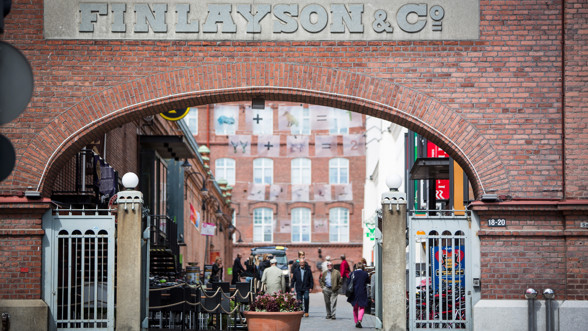Varma took part in the Global Real Estate Sustainability Benchmark (GRESB) assessment this year for the second time, scoring 75 points. GRESB is a global tool and framework for assessing and benchmarking the sustainability performance of real estate, infrastructure and investment assets, allowing investors to compare their sustainability performance.
GRESB assesses the sustainability of the entire direct real estate portfolio with respect to sustainability-related risks and opportunities, energy and water consumption, greenhouse gas emissions, environmental management systems and extensively the CSR policies and management in the entire company.
Varma scored 75/100, while last year the company scored a respectable 68 as a first-timer. Varma’s peers – a group of 91 investors – received 70 points on average. Varma received the Green Star designation for its sustainability work.
“We have set the bar high in our real estate sustainability efforts, and it shows also in our GRESB results. We work continuously to promote carbon reduction and circular economy, among other things. In addition, an increasing number of our properties will be environmentally certified in future,” stresses Johanna Haikala, Real Estate Investment Manager and co-ordinator of Varma’s real estate sustainability work.
Good scores in sustainability policies and management
In the GRESB assessment, investors are given a star rating from one to five. This year, Varma achieved 3 stars out of a possible 5, coming just shy of 4 stars. The star rating is calculated relative to the performance of peer reporting entities annually.
“We are pleased and proud of how well we succeeded in the assessment. For us, what is more important than the number of points, however, is that we can use the assessment as a tool for developing the sustainability of our real assets. It is also nice to get an outside party’s assessment of how our sustainability compares on global level,” says Haikala.
The latest assessment also brought to light some areas in need of development. For Varma, improvement is needed in the comprehensiveness of consumption data, data assurance and the supply chain’s sustainable development.
In the assessment, Varma scored particularly high points, for instance, in sustainability policy and management. Varma had set the goal of reducing the carbon footprint of its real estate by 15% between 2015 and 2020 and met the goal ahead of time.
Varma’s new climate goals are for the electricity and heating in its properties to be fossil-free by 2025 and 2030, respectively. To reach these targets, Varma has adopted tough measures and announced that it will cut the emissions of its housing portfolio in half by 2023, for instance, by introducing geothermal heating.
“We are switching to heat pumps as the heating source for a large part of the properties in our housing portfolio. Heat pumps and solar panels will be installed in 36 apartment buildings, and in some buildings, geothermal heating will replace district heating entirely,” says Haikala.
The GRESB Real Estate Assessment (REA) is carried out globally every year. More than 1,200 investors participated in this year’s assessment, which was based on the 2019 reporting year.
